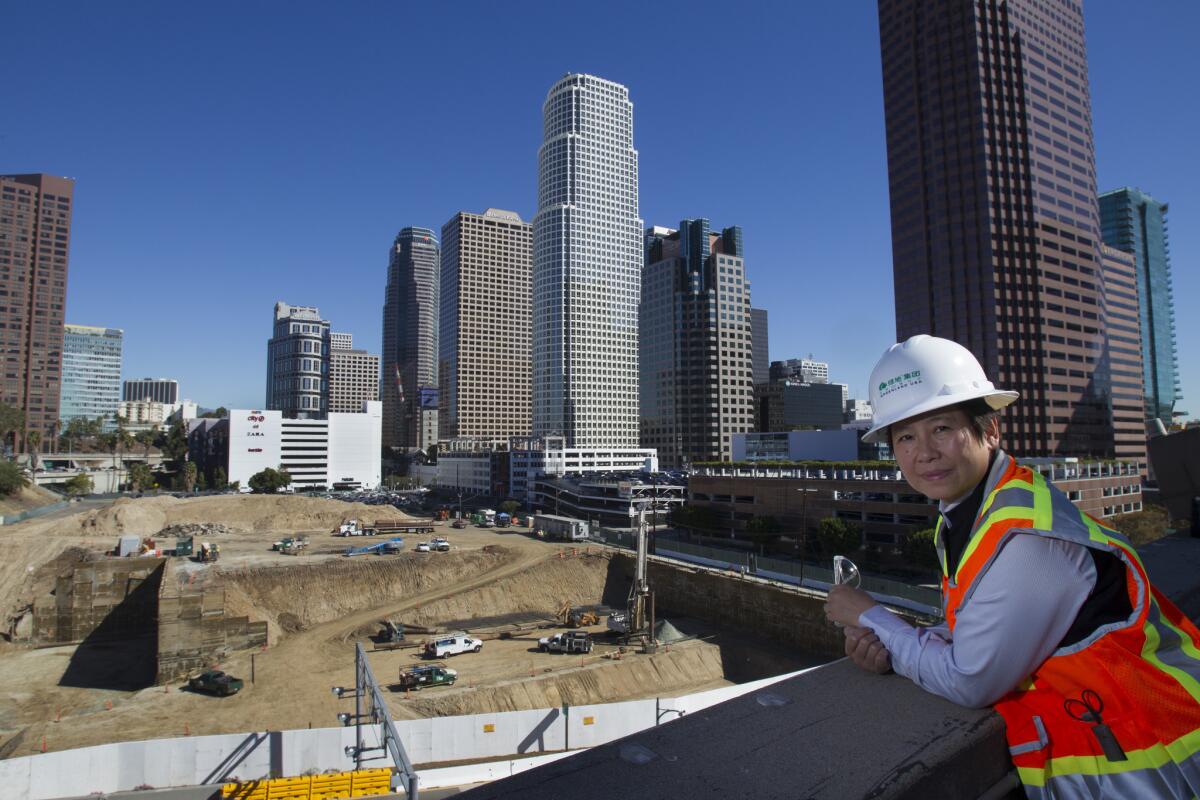State bill would help downtown L.A. developer with billboards

I Fei Chang, president and CEO of Chinese real estate developer Greenland USA, in November looking over the site of its $1-billion Metropolis Los Angeles hotel and condo project, under construction in its first phase.
- Share via
Reporting from Sacramento — At the request of the builder of the massive Metropolis Los Angeles development, state legislation has been introduced that would exempt signs and giant electronic billboards in that section of downtown Los Angeles from state restrictions.
The bill requested by Greenland USA is causing a stir among those who worry it will result in distractions for motorists and visual blight.
The measure by Assemblyman Miguel Santiago (D-Los Angeles) would exempt signs allowed by a city of Los Angeles ordinance from state restrictions on the number and location of billboards in an area bounded by West 8th Street on the northeast, South Figueroa Street on the southeast, Interstate 10 on the southwest, and State Route 110 on the northwest.
“It’s another attempt to clear the way for unlimited signage in the downtown area,” said Dennis Hathaway, president of the Coalition to Ban Billboard Blight.
Santiago noted that the legislation would require the city of Los Angeles to set limits on the size, location and number of billboards allowed downtown.
The Metropolis project owner, Greenland Group of Shanghai, is spending $1 billion on a development along the Harbor Freeway just north of Staples Center that includes a 38-story residential skyscraper and a four-star luxury hotel.
Santiago said his bill will help boost downtown.
“AB 1373 is an important step towards the continued economic revitalization of downtown Los Angeles,” he said in a statement. “It will spur the construction of much-needed hotels, meeting space, and housing, and will provide good jobs -- all while empowering the city of Los Angeles to control its own urban landscape moving forward.”
More to Read
Sign up for Essential California
The most important California stories and recommendations in your inbox every morning.
You may occasionally receive promotional content from the Los Angeles Times.











